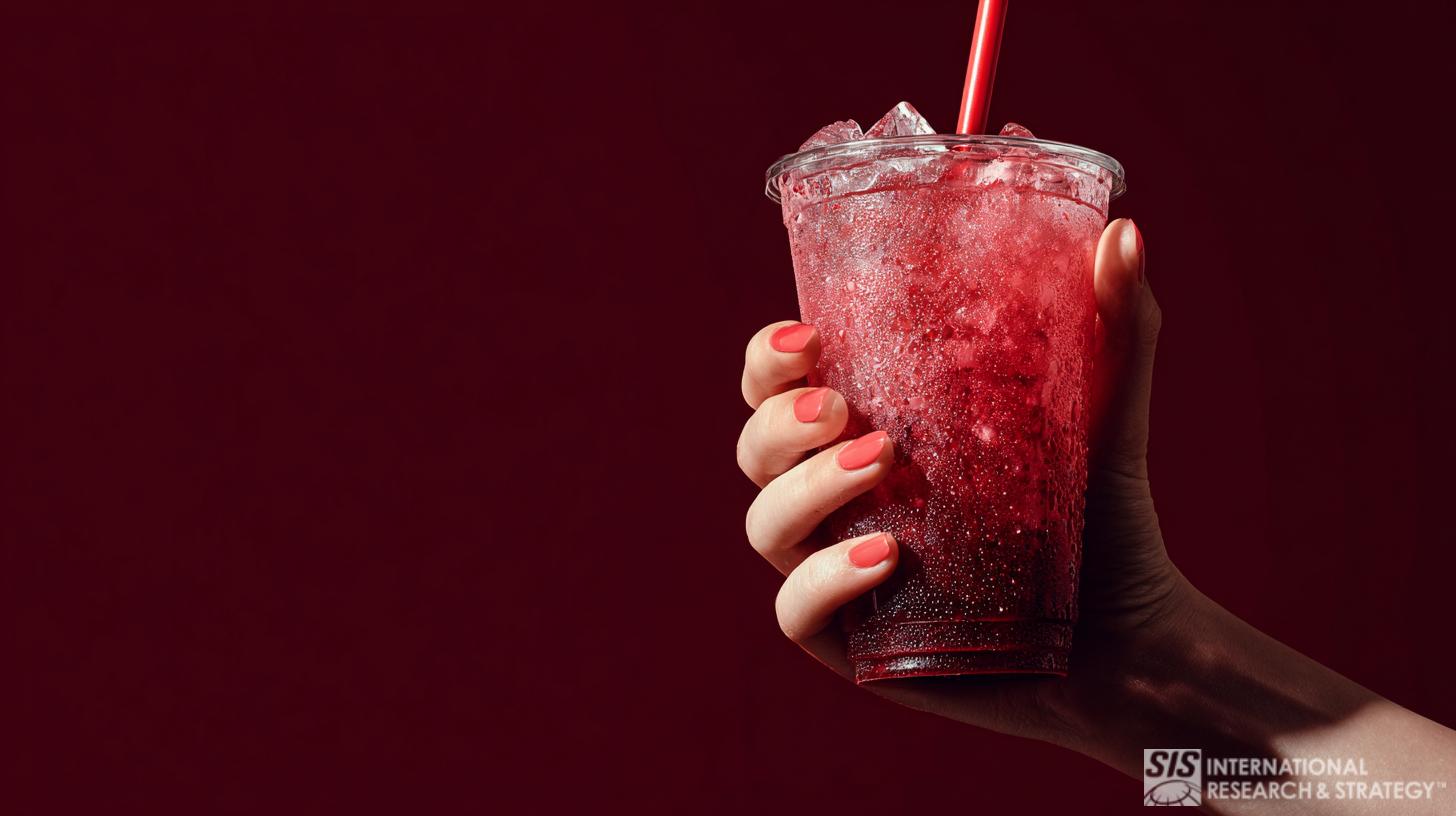Food and Beverage Taste Testing

SIS International’s taste testing services are designed to assess current products, inspire innovation and identify alignment with emerging market trends.
SIS International’s food and beverage taste testing services offer a strategic blend of sensory evaluation, consumer insights, and global expertise, all designed to help businesses excel in the competitive food and beverage industry.
What Is Food and Beverage Taste Testing?
Food and beverage taste testing assesses the sensory attributes of food and drink products. This systematic approach goes beyond mere preference to analyze the taste, aroma, texture, and overall appeal of culinary creations.
Moreover, food and beverage taste testing is not just about identifying what works; it’s about understanding why. By dissecting the sensory experience, brands can pinpoint the elements that resonate most with consumers, tailoring their products to meet and exceed those expectations.
Why Do Businesses Need Food and Beverage Taste Testing
Food and beverage taste testing offers critical insights into consumer preferences, providing a direct feedback loop from the target audience. This feedback is invaluable for tailoring products to meet and exceed consumer expectations, ensuring that new launches are well received and that existing products continue to satisfy.
Additionally, food and beverage taste testing ensures that products remain consistent across batches and locations, which is particularly critical for brands with multiple outlets. Moreover, taste testing facilitates innovation by allowing businesses to explore new flavors, ingredients, and culinary techniques safely. This exploration is essential for keeping the product lineup fresh and exciting, attracting new customers, and retaining existing ones.
In any case, food and beverage taste testing brings many benefits for businesses, including:
- Consumer Preference Insights: Regular taste testing provides invaluable insights into consumer preferences, enabling businesses to tailor their offerings to match current tastes and trends.
- Innovation and Differentiation: Taste testing serves as a platform for innovation, encouraging the exploration of new flavors, ingredients, and culinary techniques.
- Risk Mitigation: Taste testing helps identify potential issues or areas for improvement before products reach the market.
- Brand Loyalty and Trust: Consistent quality and responsiveness to consumer preferences, achieved through ongoing taste testing, build brand loyalty and trust. Consumers are more likely to stay loyal to brands that consistently deliver high-quality, appealing products that reflect their tastes and preferences.
- Strategic Marketing Content: Insights from taste testing can inform marketing strategies, providing authentic content that highlights the sensory attributes and quality of the products.
Who Uses Food and Beverage Taste Testing
Food manufacturers and processors rely on food and beverage taste testing to ensure their products meet specific quality and taste standards before hitting the market. Beverage Companies also use taste testing to develop new flavors, assess market readiness for innovative products, and ensure the sensory quality of their offerings.
Furthermore, restaurants and food service providers leverage taste testing to craft dishes that appeal to their target clientele, ensuring that each recipe delivers on taste, texture, and visual appeal. For these businesses, taste testing is integral to menu development, seasonal updates, and high customer satisfaction.
Moreover, Ingredient and flavoring companies use taste testing to demonstrate the quality and versatility of their products. These companies play a crucial role in developing new and improved products by showcasing how their ingredients can enhance the flavor profiles of food and beverages.
Lastly, research and development (R&D) teams use taste testing as part of the product development process. It allows them to experiment with new formulations, evaluate consumer response to innovative concepts, and refine products based on feedback, ensuring that new launches are poised for success.
Critical Success Factors for Successful Food and Beverage Taste Testing

For food and beverage taste testing to be effective and deliver valuable insights, several critical success factors must be considered – and here’s what businesses need to focus on for successful taste testing:
- Representative Sample Group: It is crucial to select a group of participants that accurately represents the target market.
- Controlled Testing Environment: To obtain reliable and consistent results, it’s important to conduct taste testing in a controlled environment where external factors such as noise, temperature, and odors are minimized.
- Structured Evaluation Criteria: Developing a structured evaluation framework with clear criteria for assessing the product’s sensory attributes (such as taste, aroma, texture, and appearance) ensures that feedback is comprehensive and comparable across different products or testing sessions.
- Effective Data Analysis: Effectively collecting and analyzing the data is crucial for translating taste test results into actionable insights.
- Follow-Up Actions: The success of a taste testing process is determined by the follow-up actions taken based on the insights gained. Implementing improvements, making informed decisions about product launches, and continuously refining products based on feedback are essential to leveraging the full value of taste testing.
How SIS Helps Businesses with Its Food and Beverage Taste Testing
The SIS International, food and beverage taste testing approach, leverages deep industry expertise and cutting-edge analytical techniques. This approach ensures businesses refine their product offerings and align them closely with consumer preferences and market trends. Here’s an overview of the SIS approach to food and beverage taste testing:
- Tailored Testing Design: SIS International begins with a tailored testing design to meet each client’s specific objectives.
- Selection of Diverse Participants: Understanding that diverse consumer insights drive product success, SIS carefully selects many participants for taste testing.
- Controlled Testing Environment: SIS conducts taste tests in a controlled environment to ensure accurate and reliable results.
- Advanced Sensory Analysis Techniques: SIS utilizes advanced sensory analysis techniques to evaluate various product attributes, including taste, aroma, texture, and appearance.
- Expert Analysis and Interpretation: SIS’s food and beverage experts analyse the taste testing data, offering detailed interpretations and actionable recommendations.
- Strategic Recommendations: Based on the taste-testing findings, SIS provides tailored recommendations for each client’s needs.
What Makes SIS International a Top Food and Beverage Taste Testing Company?
SIS International is a food and beverage taste testing leader, helping brands refine their offerings to meet consumer expectations. With over 40 years of expertise, advanced methodologies, and a customer-focused approach, we deliver results that empower businesses to innovate and succeed in competitive markets.
Extensive Expertise Across the Food and Beverage Industry
Our experience spans diverse food and beverage categories, from packaged snacks and ready-to-eat meals to soft drinks and specialty beverages. We understand the unique challenges of each category and tailor our research to deliver actionable insights for improvement.
State-of-the-Art Testing Facilities
SIS International’s facilities in New York are equipped with advanced sensory analysis tools and controlled environments. These resources enable precise evaluations of taste, aroma, texture, and appearance, ensuring reliable results for every study.
Access to Diverse and Representative Consumer Panels
New York’s multicultural population provides a rich pool of participants for our taste tests. We recruit a broad range of demographics, ensuring feedback reflects the preferences of your target audience across various markets.
Customized Testing Approaches for Every Brand
No two businesses are the same. SIS develops bespoke taste testing strategies, whether you need monadic testing, sequential analysis, or central location tests. Our solutions are designed to address your specific goals and challenges.
Decades of Market Research Excellence
With over four decades of experience, SIS has built a reputation for delivering accurate and actionable research. Our expertise allows us to identify trends, uncover insights, and provide guidance that helps brands innovate and thrive.
Cost-Effective, High-Value Services
SIS offers top-tier taste testing services at competitive prices. We believe in making premium market research accessible to businesses of all sizes, ensuring high-value results without straining budgets.
Rapid and Reliable Results
In the fast-paced food and beverage industry, quick decision-making is essential. SIS ensures a streamlined process and fast turnaround times, enabling you to act on insights swiftly and efficiently.
Actionable Insights That Drive Product Success
Taste testing is more than collecting opinions. SIS analyzes data to deliver insights that guide product refinement, from flavor adjustments to packaging tweaks, ensuring your offerings align with consumer preferences.
Commitment to Objectivity and Quality
Our rigorous testing protocols eliminate bias and focus on consumer perceptions, ensuring objective results. SIS is committed to maintaining the highest quality standards in every research project.
Partnering for Long-Term Success
SIS International isn’t just a service provider; we’re a strategic partner. Our collaborative approach ensures clients receive personalized attention, actionable recommendations, and ongoing support to achieve their goals.
Our Facility Location in New York
11 E 22nd Street, Floor 2, New York, NY 10010 T: +1(212) 505-6805
About SIS International
SIS International offers Quantitative, Qualitative, and Strategy Research. We provide data, tools, strategies, reports, and insights for decision-making. We also conduct interviews, surveys, focus groups, and other Market Research methods and approaches. Contact us for your next Market Research project.

